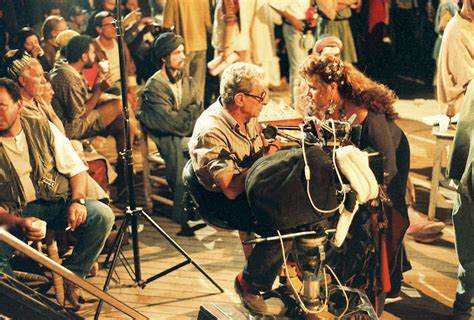
A Journey Through the Greatest Films of The Legend Youssef Chahine
Youssef Chahine was one of the most celebrated and influential filmmakers in the history of Arab cinema. Over his long career, he directed numerous films that addressed social, political, and cultural issues in Egypt and the Arab world. He was a pioneer who introduced new cinematic techniques and styles to Arab audiences, Arabic movies ,and his work inspired generations of filmmakers. In this article, we will take a look at some of the top Youssef Chahine movies that showcase his brilliance and legacy.
Cairo Station (1958)
Cairo Station, also known as The Iron Gate, is one of Chahine’s earliest and most acclaimed works. The film tells the story of a crippled newspaper seller named Qinawi, who becomes obsessed with a beautiful lemonade seller working at the Cairo train station. Cairo Station explores themes of class, gender, and violence, and is considered a landmark in Arab cinema.
The Land (1969)
The Land is a cinematic adaptation of a novel by Abdel Rahman al-Sharqawi. The film portrays the struggles of Egyptian peasants who were forced to work for landlords during the early 20th century. The Land is a powerful critique of Egypt’s social and political system, and it remains one of Chahine’s most significant works.
Saladin (1963)
Saladin is a historical epic that tells the story of the Arab leader who defeated the Crusaders and captured Jerusalem. The film explores themes of power, religion, and identity, and is considered one of the most ambitious productions in Arab cinema. Saladin was praised for its stunning cinematography, costumes, and musical score.
Alexandria… Why? (1979)
Alexandria… Why? is a semi-autobiographical film that tells the story of a young man growing up in Alexandria during the 1940s and 1950s. The film explores themes of love, friendship, and the search for identity. Alexandria… Why? is regarded as one of Chahine’s most personal and poetic works, and it won several awards at international film festivals.
Destiny (1997)
Destiny is a period drama that tells the story of a young man who travels back in time to prevent the assassination of the philosopher and scientist Averroes. The film explores themes of knowledge, tolerance, and the struggle against dogmatism. Destiny was praised for its spectacular visual effects, powerful performances, and philosophical depth.
The Emigrant (1994)
The Emigrant is a historical drama that tells the story of an Egyptian family that emigrates to the United States in the early 20th century. The film explores themes of culture shock, assimilation, and the search for the American dream. The Emigrant was praised for its sensitive portrayal of the immigrant experience, and it won several awards at international film festivals.
The Sparrow (1972)
The Sparrow is a social drama that tells the story of a young man who becomes a gang leader in Cairo’s slums. The film explores themes of poverty, crime, and social injustice. The Sparrow was praised for its realistic portrayal of the lives of young people in urban areas, and it remains one of Chahine’s most influential works.
Needless to say that Youssef Chahine was a master filmmaker who made a significant contribution to Arab cinema. His films addressed important social, political, and cultural issues, and his work inspired generations of filmmakers. The Arabic movies listed above represent some of the best and most significant works of Chahine’s career, and they showcase his brilliance and legacy. These films remain relevant today, and they offer a glimpse into the rich history and culture







